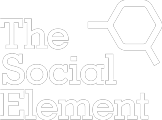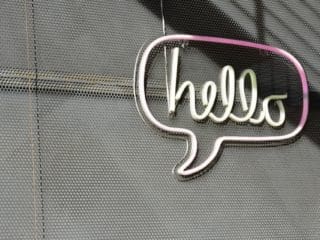Does responding on social media seem to take a lot of energy and thought to get the right answers? Or do you cut and paste the same answer for your user comments? Then it’s worth looking at creating an engagement playbook or refreshing the current one.
Your engagement playbook is your guide for how your brand communicates on social media.
Your engagement team will refer to it, and your external social media specialists will use it when they post for you. It’s also a great tool for training new team members.
What should be in your brand’s engagement playbook?
- Your brand’s personality & tone of voice
Do you want your brand to be known for being witty and relatable (like Innocent Drinks)? Or maybe you want to focus on being empathetic and informative? Whatever your style, it’s usually a good idea to focus on four or five different characteristics for your team to stick to. - Example responses
Include some of your past responses and posts to showcase how you want your tone of voice used. These aren’t designed for people to use them as templates, but as an exemplar. Practical hints and tips on how to write a response in the right tone of voice allows the team to know how to respond in the best way. - A style guide
Don’t forget to include a style guide of the following items. It’s all about consistency and making sure the response is correct, no matter who on the team writes it, it is the same across your social media channels.
- A definition of your pronouns. The pronouns you select will have a significant effect on your tone of voice. It can also get a bit tricky. However, when done well, using “I” can be a great way to create a human connection (as we can see in the below example from Sainsbury’s). “We” works well too. Whatever you choose, it’s best to stick to one pronoun to avoid any confusion. Most companies choose to use “we”, instead of “I”.
- The greetings your team will use. Social media started as a conversational platform between people, and while brands have been involved for years now, it’s best to make it more informal. So, instead of starting your replies with: “Dear Susan, thank you for getting in touch with Brand / thank you for your question…”. Instead, the team should focus on getting the tone right and providing clear information as quickly as they can. Although the informal approach doesn’t mean you can include text speak or shorten words.
- Agree on your sign-off. What’s in a sign off? This is when you agree or not to include an individual name or a group team name. Not all brands include sign-offs in their responses, as it comes down to your brand personality whether to use them. It has become the norm for companies to sign off with names for social customer service, so they feel a bit more personal. For campaign engagement, it can reduce the impact of the response, if accompanied by a name.
You’ll want to agree on a format for these. Should your team sign-off with their initials or their first name? Do you want team members to publish sign-off posts when their shift comes to an end as well? If you outline your stance on these things in your playbook, it helps your engagement teams to provide a consistent experience to all of your customers and social media followers.
It’s never too late to work on your engagement playbook. While it may feel like a pretty obvious set of guidelines to have, the truth is that social media and community management can be a bit hectic at times so it gives your engagement team the knowledge and confidence to respond correctly .
Having a playbook to refer to can help people on your engagement team build conviction in their approach, and reduces the need for them to double-check what they’re doing with their supervisors.
Engagement playbooks help you develop a consistent and unified approach to social media and community management, and this provides a solid foundation for building an engaged community.
You can find more guidance around creating engaged communities in our new community engagement guide.






Leave a Reply